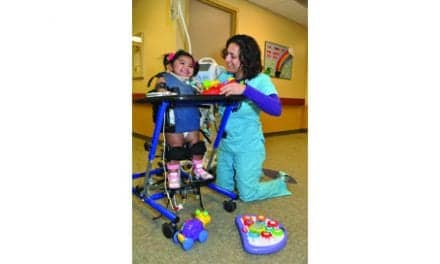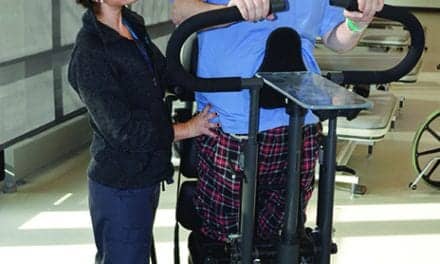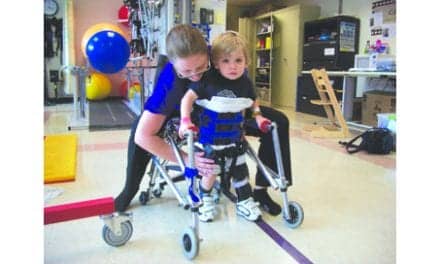Although it is a common misconception that trauma-related injuries in children come from car accidents, “in reality, falls are the leading cause of childhood injury, and most of them happen around the home,” says Christopher Moir, MD, pediatric surgeon at Mayo Clinic Children’s Center.
Approximately 8,000 children are treated in emergency departments for falls per day, according to the Centers for Disease Control and Prevention, per a news release from Mayo Clinic. At Mayo Clinic’s Level 1 Pediatric Trauma Center, 35% of the children cared for in 2014 were the result of a fall, the release continues.
Some of the most common ways for kids to fall, the release notes, are from playground equipment, off changing tables, off infant seats placed on high surfaces, from baby walkers, out of shopping carts, and out of windows.
“Kids play. They are active, imaginative and creative, and they fall all the time. That’s what they do,” says Moir, who the release notes has cared for a wide variety of injuries related to falls.
“But,” he continues, “parents need to know how essential it is to never lose sight of their child while they are young and defenseless.”
Moir shares tips for preventing pediatric falls in the home, according to the release:
- Supervise children at all times.
- Always strap infants into bouncy seats, infant car seats, and carriers.
- Keep bouncy seats and car seats on the floor, not on countertops, tables, or laundry appliances.
- Keep one hand on babies when they are on the changing table or couch.
- Place baby gates at the top and bottom of stairs.
- Do not allow children to stand up in shopping carts.
- Make sure playground equipment is age appropriate, and supervise children at play.
Now that summer is almost here, Moir shares the following reminders as windows are kept open, per the release:
- Screens are intended to keep insects out, not children in. Do not rely on them as a protective barrier.
- Keep windows closed on upper floors. If you do open them, open them from top down.
- Only open windows that children can’t reach.
- Keep all furniture and anything else children can climb away from windows.
- Set and enforce rules that children do not play near windows or patio doors.
- Commercial window guards are available to help prevent falls.
If a child does sustain a fall and is injured Moir reminds parents in the release to contact their healthcare providers. If it is serious or life-threatening, seek immediate medical attention. If no injuries are obvious, in the release Moir suggests that parents watch the child, and if the child is not acting like himself after a fall, then seek medical treatment immediately.
[Source(s): Mayo Clinic, Newswise]





